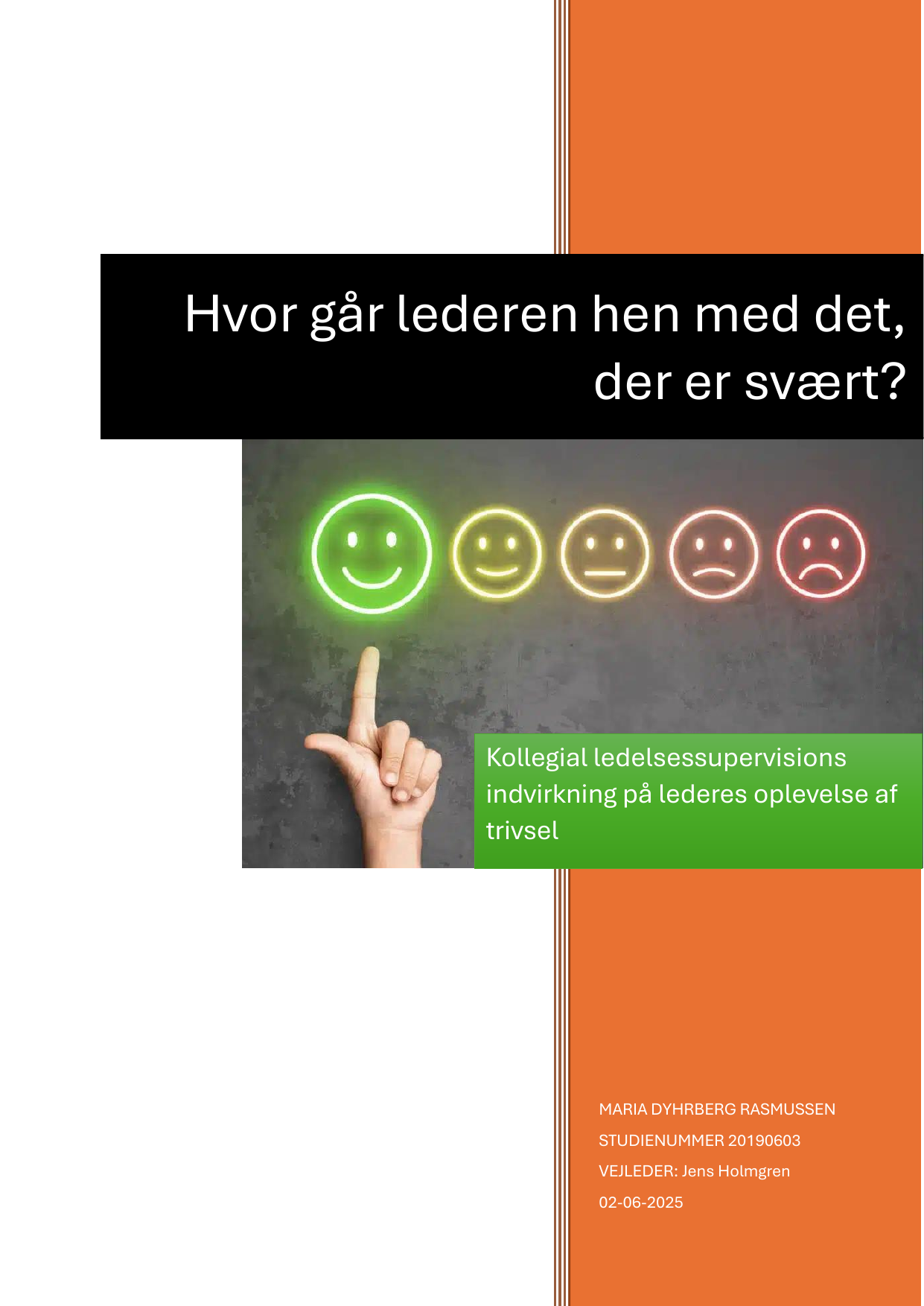
Hvor går lederen hen med det, der er svært? Kollegial ledelsessupervisions indvirkning på lederes oplevelse af trivsel
Oversat titel
Where does the leader go with, what is difficult? The impact of collegial leadership supervision on leaders' experience of well-being
Forfatter
Semester
4. semester
Udgivelsesår
2025
Afleveret
2025-06-01
Antal sider
55
Abstract
This master’s project is about the well-being of leaders. Up until the last few years ago the well-being of leaders hasn’t had an organizational focus. The leader has been responsible for the well-being of employees, but no one has taken responsibility for how the leader thrives. There has been an accepted discourse, also from most leaders, that the well-being of leaders was the leader’s own responsibility. As the pace increases and the leadership task has become more complex, it becomes crucial that the organization takes on this responsibility. I’ve worked with collegial supervision as a tool to create a confidential space, where leaders can talk to other leaders about what is difficult. It has had good feedback and seemingly has a positive effect. Therefore, in this master's project, I investigate; How does structured collegial supervision between leaders affect educational leaders’ experience of both their own and the leadership group's intercollegial well-being? I’m investigating the question qualitatively based on a social constructivist framework. It’s theoretically elucidated through theories about collegial supervision of leaders, leaders’ well-being and psychological working environment, and what characterizes the special dynamics of leadership groups. It’s empirically examined through four qualitative individual interviews. Based on the analysis, I conclude that collegial supervision in leadership groups has a significant and positive impact on both individual and intercollegial well-being. Strength lies in a clear framework and methodological structure that creates a safe and focused space for reflection. The structure releases presence and supports reflection and thoughtfulness, which promotes psychological security, trust, and learning. For the individual leader, collegial supervision contributes to an increased emotional, social, and psychological well-being, by supporting time for reflection. The leader can unfold and explore doubts so the feeling of standing alone is reduced. It develops the leader professionally and personally and supports the leader's courage and ability to act in a complex management environment. At the group level, collegial supervision promotes intercollegial well-being through the experience of cooperation, trust and community. The common main task – management and leadership – is given it’s own space. Basic assumptions are challenged and nuanced and a culture characterized by openness and mutual understanding is promoted. The group's mentalizing ability is strengthened, which increases the group’s ability to handle complexity and create meaningful relationships.
Emneord
